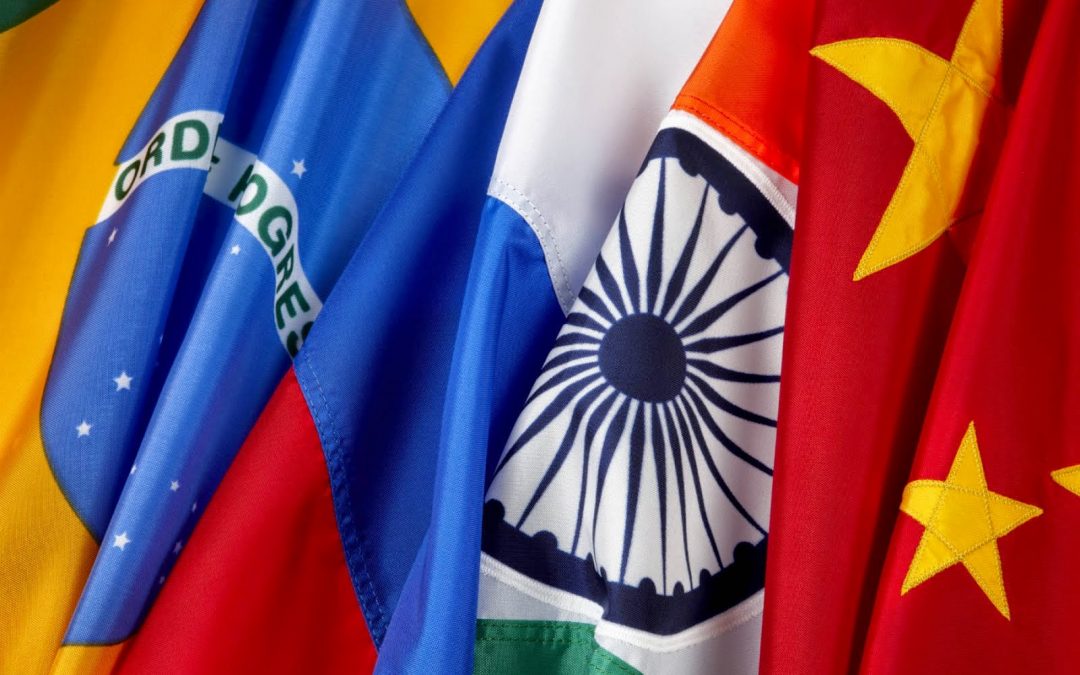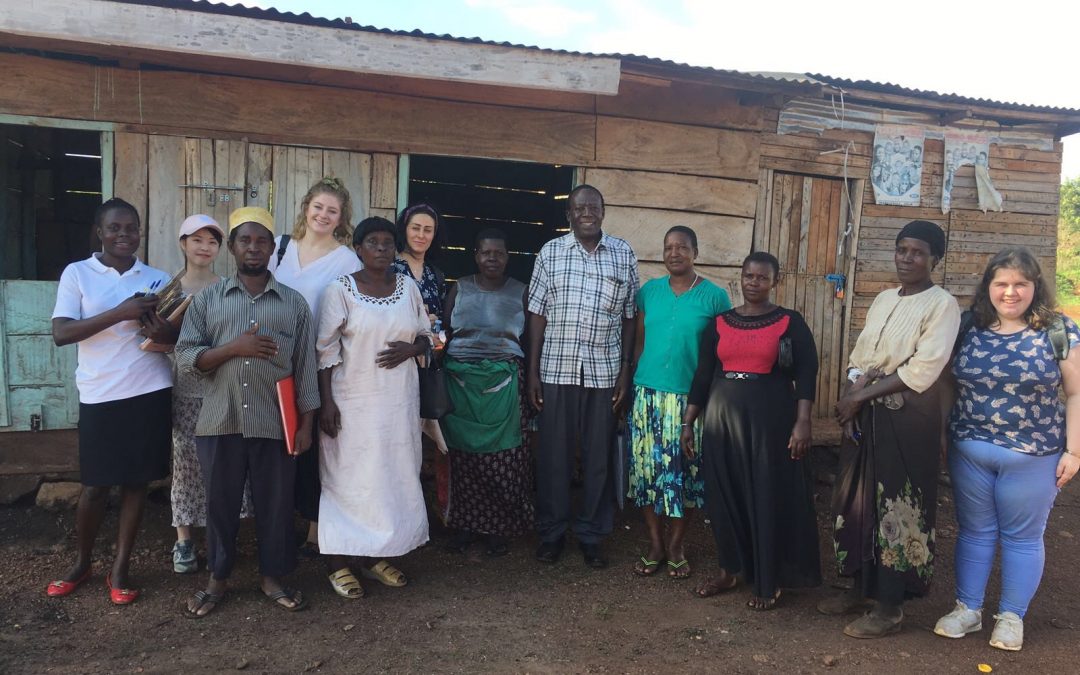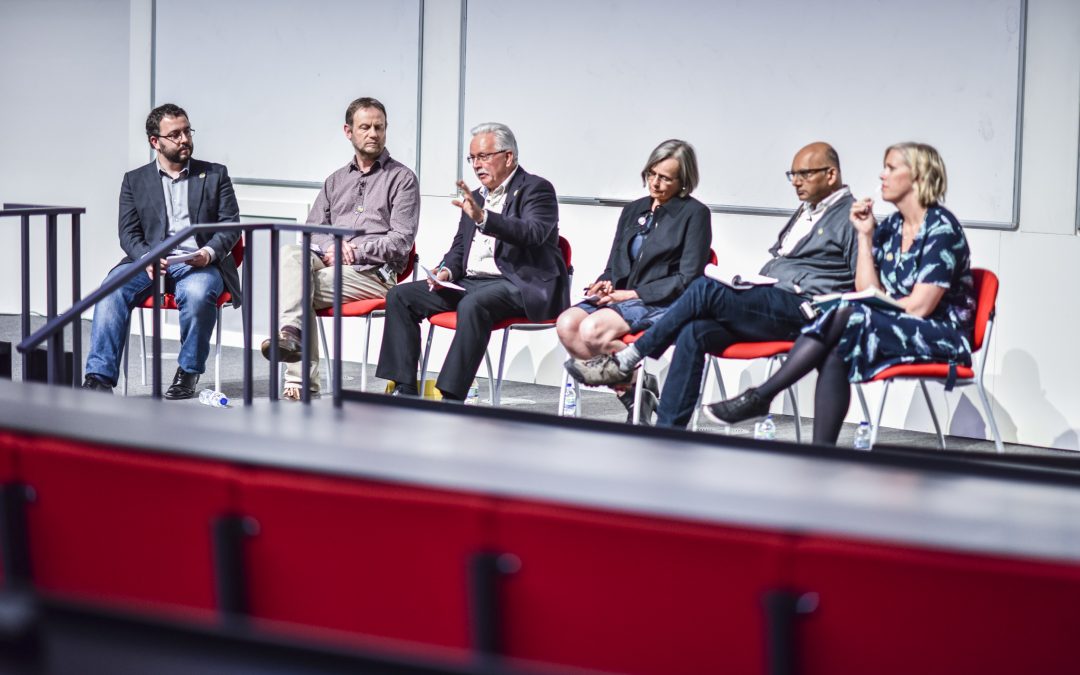DSA2018: Does structural transformation lead to higher inequality?
The Development Studies Association Annual Conference is being hosted by the Global Development Institute from 27-29th June. The conference will focus on inequalities. Ahead of the conference, we are running a series of blogs from attendees looking at the key issues and debates around inequalities.
By Kunal Sen, Global Development Institute, The University of Manchester
Structural transformation – the movement of workers from low productivity to high productivity activities and sectors – is an essential feature of rapid and sustained growth. The speed at which structural transformation occurs differentiates successful countries from unsuccessful ones. At the same time, it is widely believed that structural transformation can lead to higher inequality, at least initially. As workers move from low earnings jobs in the subsistence agricultural sector to better paid jobs in the more productive manufacturing sector, inequality can increase. Therefore, rapid structural transformation may entail a trade-off between growth and inequality, which may be called the developer’s dilemma. While inequality may increase at the early stages of structural transformation, beyond a certain level of structural transformation, inequality will decrease, giving rise to the famous inverted U-shaped relationship between income and inequality – the so-called Kuznets curve.

Refugee Week reflections: The end of Europe as a community of values – not caused by Brexit but the journey of the Aquarius?
Tanja R. Müller, Reader in Development Studies, Global Development Institute
Remember 2015? Then, a perceived unprecedented number of refugees and migrants entered Europe, more than one million people according to available data, while almost 4000 drowned on their journeys. We saw long queues of people stranded at the borders of mainly Eastern European countries, pictures that for many evoked scenes of refugee movements after WWII.
But the year 2015 also saw a courageous German chancellor, Angela Merkel, deciding against many in her own political party to open German borders and do the morally right thing: let those stranded in, to be welcomed and processed in Germany. Yes, initially the German asylum system as well as many of its welfare institutions were somehow overwhelmed, but the slogan ‘we will manage’ and a wave of bottom up solidarity by German citizens, NGOs and the business sector seemed to vindicate that optimism, and localised solutions were mostly found for those in peril. And in fact, Germany has managed pretty well, even if right-wing propaganda suggests otherwise. read more…

DSA2018: Land, ethnic inequality and conflict in Ethiopia’s emerging new political order
The Development Studies Association Annual Conference is being hosted by the Global Development Institute from 27-29th June. The conference will focus on inequalities. Ahead of the conference, we are running a series of blogs from attendees looking at the key issues and debates around inequalities.
Tom Lavers, Lecturer in Politics and Development
The last few years have seen large-scale conflict and major population displacements across Ethiopia, along the Oromiya-Somali border, within the contested Guji-Gedeo area, Amhara displaced from Benishangul-Gumuz, and Amhara and Tigrayans displaced from Oromiya, amongst others. These conflicts have often taken place along ‘ethnic’ lines and build on historical tensions, inequalities and grievances. They have also clearly been driven by the ongoing reconfiguration of power relations within Ethiopian politics, with mass mobilisation and conflict often a tool or byproduct of national and regional elites attempting to position themselves within the emerging political order in Ethiopia. A recent open access paper published in African Affairs argues that such conflicts reflect the ambiguity and contestation that is hard-wired into Ethiopian laws and popular discourse regarding the rights—in particular the right to land—of ethnic minorities living outside their ‘home’ region within Ethiopia’s ethnic federal system.

DSA2018: Migration, Social Justice and Global Inequalities
The Development Studies Association Annual Conference is being hosted by the Global Development Institute from 27-29th June. The conference will focus on inequalities. Ahead of the conference, we are running a series of blogs from attendees looking at the key issues and debates around inequalities.
Tanja R. Müller, Reader in Development Studies, Global Development Institute
Where somebody is born determines their life chances much more profoundly than what strata of society they are born into.
In the 21st century, a century that has seen increasing concern about global inequalities, this sentence seems truer than ever. This raises important questions related to fairness and social justice. One can discuss social justice in relation to income and wealth, and in relation to capabilities and the freedom to do things. In short, social justice is intimately linked to what Arjun Appadurai calls the ‘capacity to aspire’, and how that capacity is fostered or hindered. read more…

Rising Powers Special: The BRICs Uncovered
This week BBC Hardtalk’s Stephen Sackur speaks to Global Development Institute academics and other leading thinkers.
The feature length documentary examining the global trends, recent research findings and future directions for the rising powers.
What can social scientists know from art and how?
This blog originally appeared on the Manchester Migration Lab website
Written by Cathy Wilcock based on group reflections
This blog is a reflection on a workshop held at the University of Manchester and hosted collaboratively by the UoM Politics Department and the Institute of Social Studies in Den Haag. The workshop, co-organised by myself – a postdoc at ISS – and Aoileann Ní Mhurchú – lecturer in International Politics at UoM, was primarily asking ‘What can social scientists know from art and how?’. The workshop aimed to start conversations between those who make art, and those who engage with art in their social science research. The ideas recorded here are comprised of verbal and written reflections of all those attending the workshop (4 artists and 6 academics). read more…

How attempts to empower women can affect household dynamics.
A reflection on women empowerment in slum upgrading projects
by Esther Ndacyayisenga
‘’In some families women are still oppressed and can’t come up. In others, women have managed to cooperate with their husbands and still reap the benefits of the federation. And for other families, it ended in breakup and family destruction’’ – Female-participant A, personal communication, March 27, 2018.
It is widely accepted that empowering poor urban communities and involving them in political and economic decision making has the potential to contribute to poverty reduction and improved household livelihoods (UNDP, 2016), especially when empowering women, who are widely thought to use monetary gains in a way that benefits the household (spending money on food, rather than booze and leisure). But what is the impact on household dynamics when more power is gained by the female household member? While focusing on economic empowerment, this blog discusses this issue, combining a reflection on the literature and the recent fieldwork experience in Jinja, Uganda, where the urban poor women in slums are the primary beneficiaries of Slum Dwellers International (SDI) development programmes.

Our academics on the future of development studies and other difficult questions
To celebrate the end of the academic year we brought together leading academics from the Global Development Institute in a lively session. Fielding questions from the class of 17-18 our academics answer questions on the reality of development theory vs practice, the future of disruptive tech and ICT4D, and the concept of inequality.
The session was compared by Pablo Yanguas and features Diana Mitlin, David Hulme, Richard Heeks, Khalid Nadvi and Helen Underhill.

Rwanda and Arsenal: Why a budding developmental state is sponsoring a football team
By Dr. Pritish Behuria, Hallsworth Research Fellow
On 23 May, The Rwandan Development Board announced that it had signed a ‘Visit Rwanda’ sleeve sponsorship deal – worth around 10 million pounds a year for three years – with Arsenal F.C., the world’s best football club (I am clearly not an Arsenal fan). Many were surprised by this news. Most of all, Dutch Members of Parliament and politicians. De Telegraaf – a Dutch newspaper – published a story, quoting one Dutch MP who said, “I am indignant that a country where we provide solid financial assistance has now become a whopping €30million shirt sponsor of a major English football club.” The country’s aid minister, Sigrid Kaag, has been tasked with looking into the deal and reporting back to the Dutch parliament. Critics of the Rwandan government have also latched on to this news, arguing that the money would be better spent elsewhere.

Is there hope for the Russian economy? Stephen Sackur interviews Sergei Guriev
This week BBC Hardtalk’s Stephen Sackur interviews leading Russian economist Sergei Guriev, for the latest in the Rising Powers and Interdependent Futures podcast series.
They talk about the problem that Russian economy is facing with corruption and the need for deep structural reform, alongside the potential Russia has given its educated citizens and natural resources.
